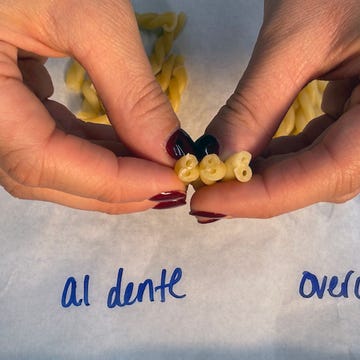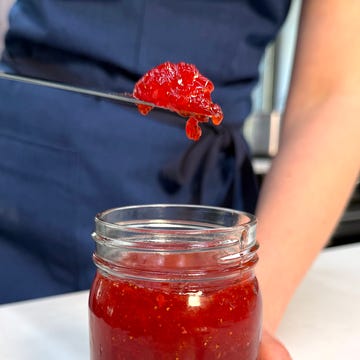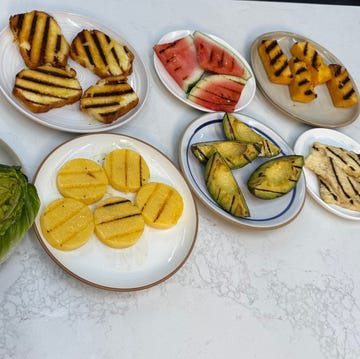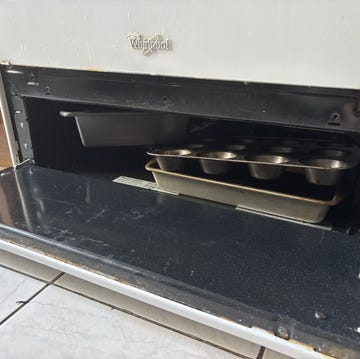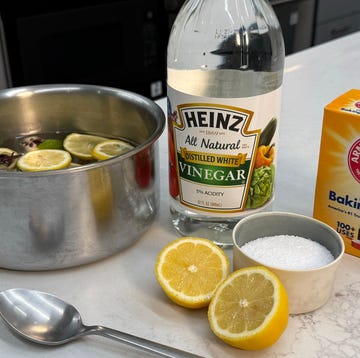Following a vegetarian diet is easier than ever, but there are still ways for meat to sneak its way into your food. A splash of chicken broth here, some bacon fat there—eating food that you haven't made yourself always comes with some risks. But you may not even realize that there could be animal products hiding in plain sight in your kitchen.
We're sorry to break the news, but it's cheese. The ingredient that tops nearly every pizza, graces countless salads, and adds a savory sprinkle to a bowl of pasta is a major boost of flavor for vegetarians everywhere—but it's not always vegetarian-friendly.
At first glance, it should fit the bill. Milk is an animal byproduct, like eggs, which makes it appropriate for people who don't eat meat. However, there's a lot more that goes into the cheesemaking process, including ingredients derived from animals. We consulted Cathy Strange, Whole Foods Market's Ambassador of Food Culture and Global Cheese Expert, to talk all things cheese and what vegetarians should know.
How Is Cheese Not Vegetarian?
Whether it's fresh and spreadable or aged and sharp, your cheese will always begin with milk that's separated into curds and whey. This process, known as coagulation, will allow curds to clump together and form the beginnings of cheese. But coagulation doesn't happen on its own; it needs help from enzymes called rennet, explains Strange.
Since the early days of cheesemaking, rennet has been sourced from animals. In fact, historians theorize that the first cheese was made on accident, after people stored milk in containers made from animal stomachs. Pasture animals like cattle and sheep produce a particular enzyme called chymosin, which is still used to make cheese today.
Rennet can be sourced from many different animals, but most cheesemakers use enzymes derived from calves, which have higher concentrations of chymosin. But to use that rennet for cheesemaking, animal stomachs have to be processed to form an enzyme extract. This means cheeses that use animal rennet are technically made with meat (albeit in small doses).
But vegetarians can still enjoy cheese that aligns with their diets. Thanks to modern technological innovation, several plant-based rennets have entered the market. "The use of the term 'made with enzymes' or 'suitable for vegetarians' means that the activator is typically produced using a bacteria that is plant based—usually a fungi," Strange says.
How To Find Vegetarian Cheese
Now you know that cheese isn't always vegetarian, but there's no reason to panic. You can easily find options that suit your diet—it just requires reading the fine print and doing some extra research. First, let's break down the basics.
Cheesemaking is a time-honored tradition, and some organizations exist to protect ancestral methods. This is especially common in Europe, where certain cheeses have special certifications and protections. Cheeses like Italian Parmigiano Reggiano and French Comté have to be made under strict guidelines so they taste the same as they did hundreds of years ago—which means they usually have to use animal rennet.
Strange says that most cheeses that have the European Union's Protected Designation of Origin (or PDO) are made with traditional rennet. In the United States, however, there's far more cheesemaking flexibility. "The majority of cheeses–over 90%–produced in the United States use an enzyme that is classified as suitable for vegetarians," Strange adds. And many American cheeses are designed to taste similar to heritage European cheeses, so it's easy find a veggie-friendly substitute for any recipe.
You'll have the best odds of finding a vegetarian-friendly cheese if you choose domestically made products, but it's always worth reading the ingredients list. "The rennet information should be listed on the ingredient panel of the cheese," says Strange. Stores like Trader Joe's and Whole Foods will disclose the type of rennet on their private label products. However, in cases where it's not clear or you're not sure, you can always ask the cheesemonger behind the counter at your grocery store.




